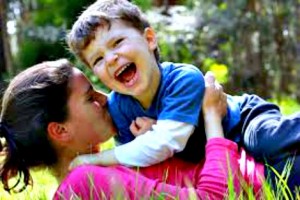 Most treatments for autism spectrum disorder (ASD) begin, at the earliest, around age three or four. A new study finds that it might be possible to begin therapy for ASD symptoms while children are in their first year of life. Researchers at Manchester University tested a video feedback program that guided parents in their interactions with their infants. The program resulted in improved attention, engagement, and social behaviors in the infants. This type of intervention could reduce the likelihood of children developing ASD later on.
Most treatments for autism spectrum disorder (ASD) begin, at the earliest, around age three or four. A new study finds that it might be possible to begin therapy for ASD symptoms while children are in their first year of life. Researchers at Manchester University tested a video feedback program that guided parents in their interactions with their infants. The program resulted in improved attention, engagement, and social behaviors in the infants. This type of intervention could reduce the likelihood of children developing ASD later on.
The researchers designed a video intervention called Video Interaction for Promoting Positive Parenting Programme (iBASIS-VIPP). Fifty-four families with infants at increased risk for ASD participated in the study. The infants had siblings diagnosed with ASD and were between the ages of 7 and 10 months. To test whether iBASIS-VIPP could reduce the symptoms of ASD in infants less than a year old, half of the families in the study participated in the treatment program for five months. The families who participated in the treatment received at least six home-based visits from a therapist. The therapist used video feedback to help parents understand and respond to their infants’ communication style. The rest of the families received no treatment.
Feedback-based video therapy may help reduce the emergence of autism-related symptoms related to attention, engagement, and social behaviors. Infants who participated in iBASIS-VAPP demonstrated a reduction in emerging autism behaviors, as measured by the Autism Observation Scale for Infants. Parents’ behavior changed, too. By the end of the program, parents were less directive in their interactions and were better able at increasing their infant’s attention.
Although the study followed only a small number of children, the results are promising. The study could lead to earlier interventions for children with an increased risk for developing ASD.
Jonathan Green, lead study author and Professor of Adolescent Psychiatry at the University of Manchester, says of the findings, “Previous research has shown that parent-based interventions … tend to have the greatest effects on parent-child interaction, whilst having little impact on actual symptoms. In contrast, the video-based intervention we tested in this study in early infancy seems to have wider impact on a number of behavioral effects and risk markers for later autism.”
This research is published in The Lancet Psychiatry journal.
Previous news in autism:

